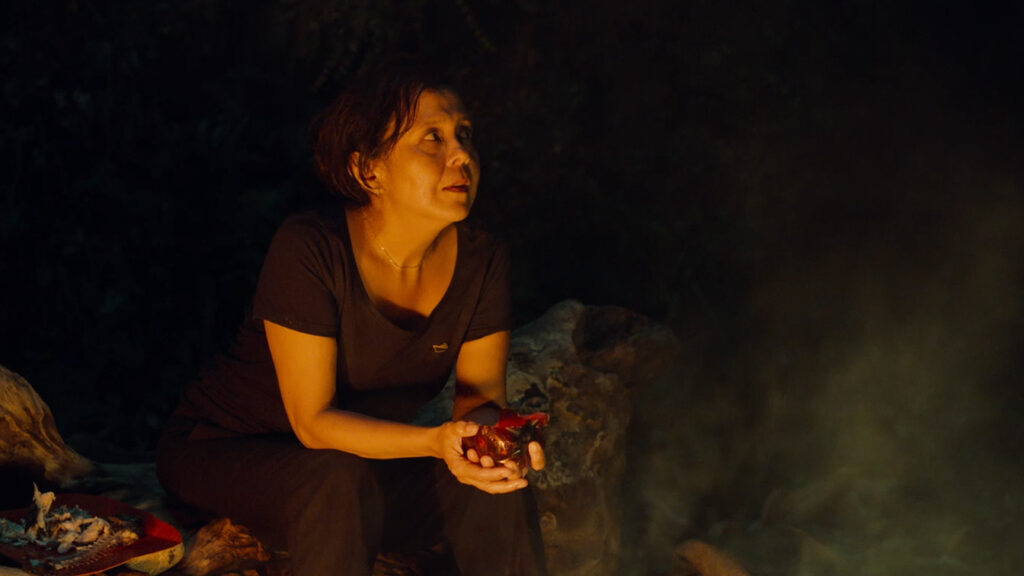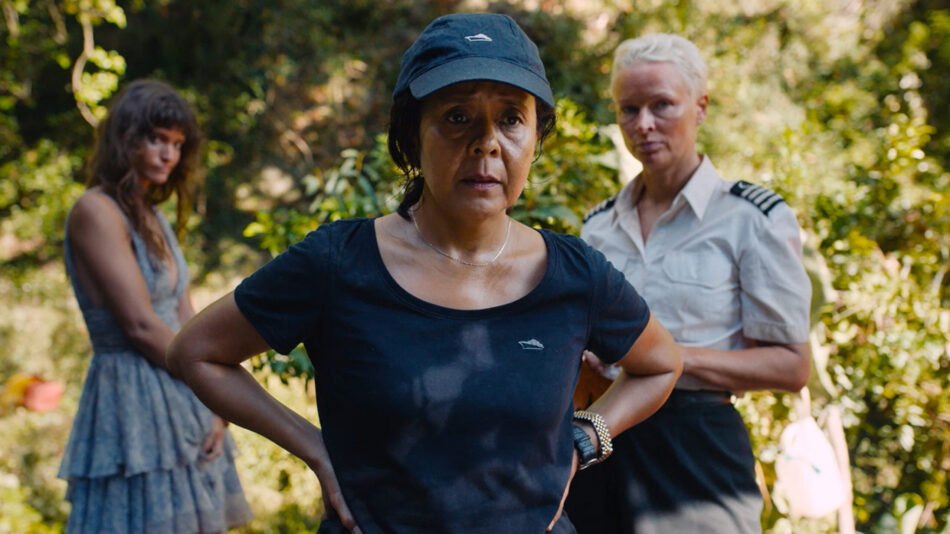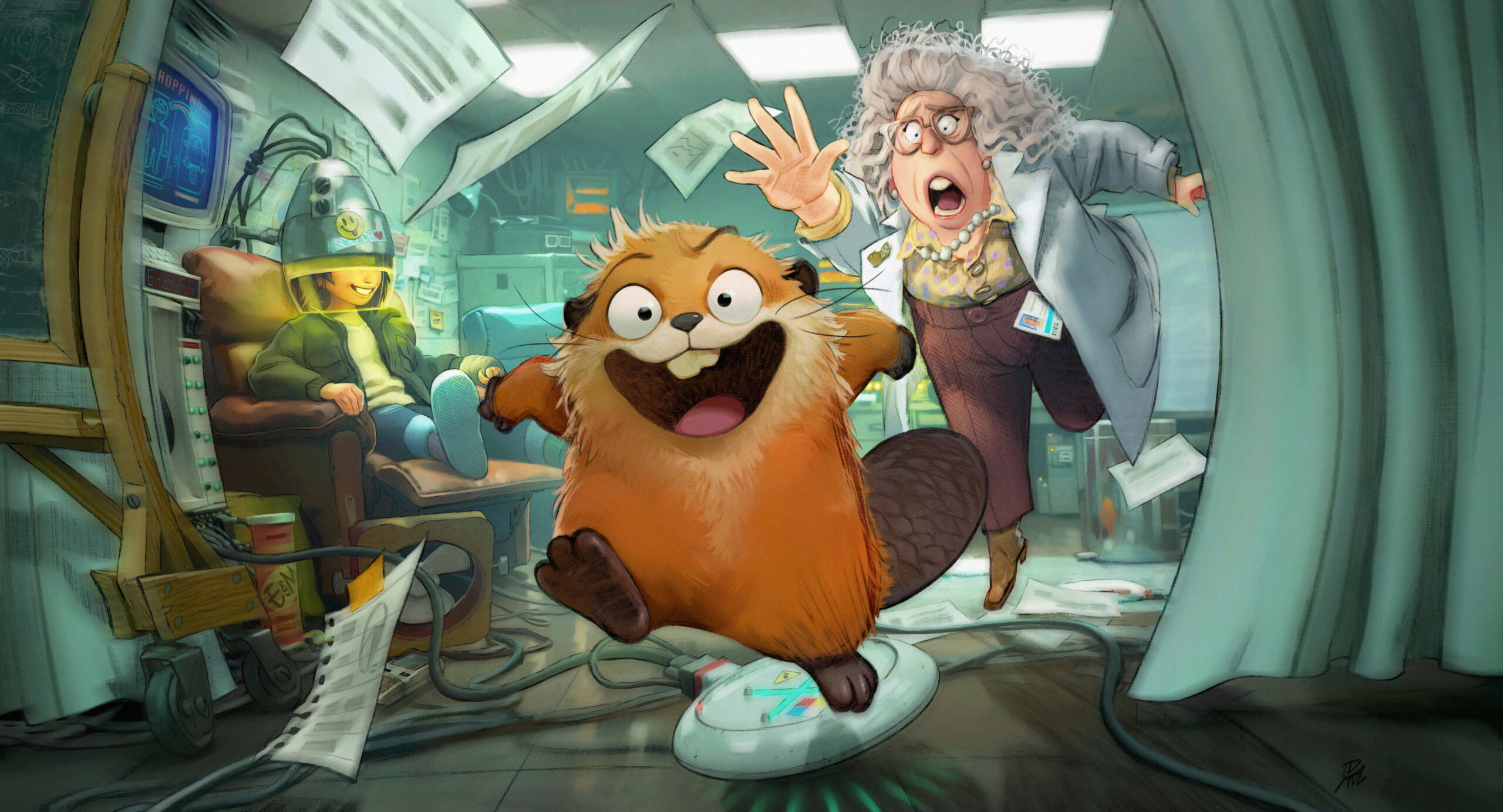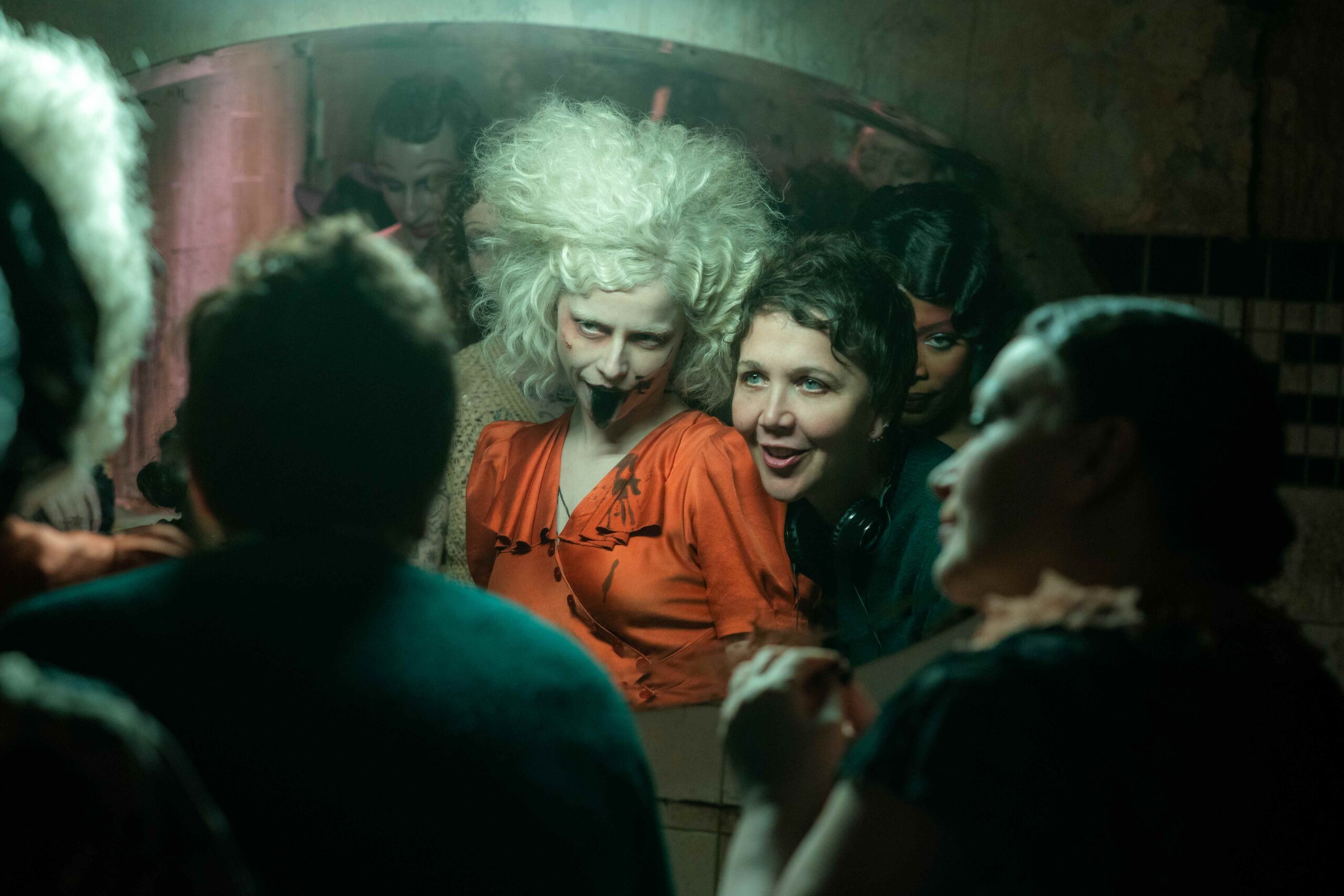In a simulated, temporary reality that happens at least once a year in the last twenty-two years, the only privilege that comes to play–and one that matters often–is the experience of growing up without a lot of it.
In the world of Survivor, where everyone is stripped off of all luxuries and left only with the most basic of things, social status and an affluent background won’t do anyone much good because the skills that would help a person get ahead are the skills they most likely missed out on due to their background: fishing, cleaning fish, making fire, chopping wood and making shelter–things that only Abigail (Dolly De Leon), the toilet manager of a yacht for the super-rich in Robert Ostlund’s Triangle of Sadness, knows how to do.
And those essential skills allowed her to make a power play on the island, finally shifting the dynamics to her favor. Inside the yacht, Abigail is low on the class totem pole. She’s on an even lower rung than cabin crews who get to interact with the guests.
She cleans up after the beautiful, famous and rich guests.

No one pays much attention to her. When guests do talk to her, they do so with a door between them and in an irritated tone. Throughout the first half of the Palme d’Or winning-movie, Abigail (and the rest of the cleaning men and women of the yacht) was shown only a few times, with barely any speaking lines.
This depiction of her in the early part of the movie is so significant in how her status and the role she will play in the lives of the people aboard the ship. A person who rarely gets any second look and is just there–expected to pick up the mess, scrub the floor and make life convenient for the rest.
And that’s most likely because of her character’s lack of privilege. So no one bothered with her.
In many ways, Abigail’s plight aboard the yacht is parallel to what happens on the islands of Survivor. The less advantaged are more likely to not get much attention (initially): the less attractive ones, the old ones, the young ones, the weird and quirky.
The cool people are the ones who form day-one alliances almost instantaneously, even without much knowledge about each other except their cool jobs, pretty looks and common predilections for the shiny things in life.
Especially in the early seasons of the show, when someone can’t get into the good graces of majority alliances to avoid getting voted out pleads their case by making themselves useful around camp. That means cooking, cleaning and tending the fire.
You’re a sure hit if you know how to fish and find food. People value you despite how they think of you or feel about you.
Because you’re the one standing between them and starvation, you need to be protected–at least for the first few days, until they learn how to do it themselves or you’ve become so annoying. But even then, since people would prefer to be served, they’ll put up with anything as long as you keep feeding them.
And that is why, in the movie’s third act, when the yacht went down at sea and stranded everyone on an island, Abigail, the toilet manager, was able to flip the game and made herself the Captain.
No one had the gall to oppose.
The lowly cleaning lady whom no one pays attention to is now the only person who has the vital skills to keep everyone from dying of hunger.
She knows it and she made sure to capitalize on that so she can hold on to her power.
This, for me, is the most delicious part of the highly acclaimed movie. Triangle of Sadness would have sank faster than the yacht had it not been for De Leon’s enthralling performance. Of course, the same credit needs to go to Ostlund for writing her character.
Yes, the second act was one hundred percent attention-grabbing but mostly because of the hilarity of seeing the rich people make complete fool of themselves. The first act was teetering on being a dud had it not been for the chemistry between Yaya (Charlbi Dean) and Carl (Harris Dickinson).

It was in the third act when everything comes to life. The good thing about it is that it’s entirely pushed forward by the characters and their choices, not by external forces. By this time, each one has established who they are, what they can and cannot do (will and will not do) so we, as viewers, somehow have an idea how they will fare on the survival part.
Which is why the experience of seeing the events unfold becomes fun. Make no mistake about it: the movie will elicit tons of laugh even from the start, and by the time we get to the third act, the laughs will keep on coming (thanks to the effect of De Leon’s character’s choices) but the profundity of the situation–and its metaphors that are glaring to the audience–makes each scene more impactful.
You’re not merely laughing because the situation is silly and funny; you’re laughing because the dynamics and power struggle are a reality and chances are you’ve seen it happen more than once in real life.
Triangle of Sadness really anchored on Abigail and the impact she had on the people she was with. The movie’s themes all zoned in on her in the end. She was the epicenter of the class struggle and power plays that occur between the rich and privileged and the poor and deprived.
And it’s great that Abigail’s character was brought to life by De Leon.
In the end, pretty much like what happens in Survivor, it all comes down to the lengths to which one is willing to go not just to survive, but to hold on to power, status and comfort.
The final scene is one of the best I’ve seen this year. It’s simple yet had so much impact. And, again, it’s because of the great performance from its breakout star: Dolly De Leon.
Triangle of Sadness opens in Philippine cinemas on November 30, 2022. It is distributed exclusively by TBA Studios.



